Have you ever noticed your dog acting weird and wondered, “My dog is shaking and acting weird.” or “My dog is shaking and acting weird and not eating.”? It’s not uncommon for pet owners to encounter situations where their beloved companions exhibit unusual behavior.
Dogs, like humans, can have off days or moments when they behave differently than usual. While it’s not always a cause for alarm, it’s essential to understand the reasons behind these changes in behavior. So, Let’s explore some common explanations for why dogs act weird and what you can do to address these concerns.
Whether your dog is acting weird due to health issues, anxiety, environmental factors, or simply age-related changes, this guide aims to shed light on the subject. By the end of this discussion, you’ll be better equipped to identify why your dog is acting weird and learn steps to help them feel more comfortable and content. So, let’s dive in and unravel the mysteries of our dogs acting weird.
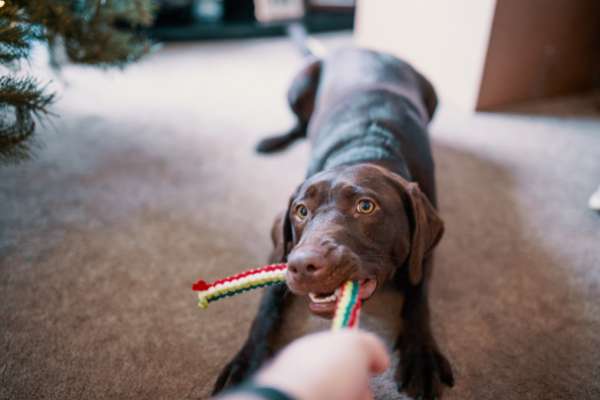
Common Reasons for Dogs Acting Weird
When your furry friend is acting weird, like when you’ve observed your dog shaking and acting weird and not eating, it’s crucial to pinpoint the underlying causes. Dogs can exhibit unusual behaviors for various reasons, and understanding these factors is vital for their well-being.
According to Pets at Home, poor diet can cause Obesity, Pancreatitis, Bladder stones, Heart problems, and Diarrhea in dogs. Let’s explore some of the most common explanations for why dogs act weird:
Health Issues
- Illness: Sometimes, a hidden illness could cause your dog to act weird.
- Pain or Discomfort: If your dog is shaking and acting weird, it could be due to pain or discomfort. Dogs may become restless or withdrawn when they’re not feeling their best.
- Neurological Problems: Neurological conditions can also result in your dog acting weird. These issues might cause disorientation, tremors, or unusual movements.
Behavioral Factors
- Stress and Anxiety: Dogs can experience stress and anxiety just like humans. Events like thunderstorms, fireworks, or separation from their owners can lead to dogs acting weird.
- Fear or Phobias: Fear of specific objects or situations can cause your dog to act weird. They may tremble, hide, or become hyperactive in response to their fears.
- Changes in Routine: Dogs thrive on routine, so any significant changes can lead to your dog acting weird. This might include moving to a new house or changes in their daily schedule.
Environmental Factors
- New Surroundings or People: When introduced to unfamiliar surroundings or people, my dog is acting weird. It’s a common reaction as they adjust to the new environment.
- Weather-Related Issues: Extreme weather conditions can translate to dog acting weird, making them restless or anxious during storms or extreme temperatures.
- Changes in Living Conditions: Alterations in the home environment, such as renovations or rearranged furniture, can lead to dogs acting weird as they adapt to the changes.
Age-Related Changes
- Puppy Behavior: Puppies often display a range of behaviors as they grow and learn. This can include seemingly odd actions as they explore their world.
- Senior Dog Behavior: As dogs age, they may exhibit different behaviors. Cognitive changes and physical limitations can contribute to dogs acting weird in their senior years.
Social Interactions
- Interaction with Other Pets: Interactions with other pets, whether positive or negative, can affect your dog’s behavior. Social conflicts can lead to dogs acting weird around other animals.
- Human Interactions: Your dog’s behavior can also be influenced by their interactions with humans. Traumatic experiences or lack of socialization can contribute to dogs acting weird around people.
- Lack of Socialization: Adequate socialization during a dog’s early development is crucial. Without it, dogs may act weird in social situations.
Hunger, Thirst, and Basic Needs
- Hunger or Thirst: Sometimes, a simple explanation for your dog acting weird could be hunger or thirst. Ensuring they have enough food and water is essential.
- Lack of Exercise: Dogs need regular exercise to expend energy. A lack of physical activity can lead to restlessness or unusual behavior. According to ASPCA, exercising twice a day for up to two hours total can keep your dog healthy, reducing your dog acting weird.
- Need for Mental Stimulation: Mental stimulation is as important as physical exercise. Dogs acting weird may be seeking mental challenges or enrichment.
A varied diet with sufficient protein is very crucial for a dog’s health. For more insights on the importance of protein in a dog’s diet, read What is Chicken Meal in Dog Food?
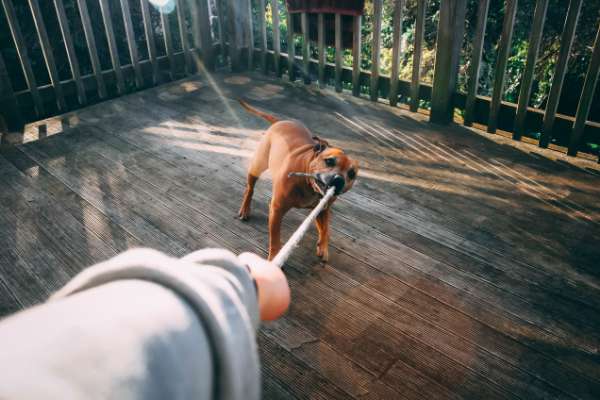
The Exact Signs of a Dog Acting Weird
When your dogs acting weird, it’s crucial to pay close attention to their behavior. These signs can provide valuable clues about what might be going on with your dog. Here are some common signs of a dog acting weird that you might notice:
Behavioral Indicators
- Aggression: Your dog may display unusual aggressiveness, growling, snapping, or biting, which is out of character.
- Withdrawal: They might become unusually distant, avoiding interactions and seeking solitude.
- Excessive Barking or Whining: If your dog is acting weird, it may bark or whine more than usual, often without an apparent reason.
Physical Indicators
- Lethargy: If your dog acting weird, seems unusually tired, and lacks their usual energy, it could be a sign that something is amiss.
- Trembling or Shaking: This can be a visible sign of distress or discomfort. If your dog is shaking and acting weird, it’s a cause for concern.
- Loss of Appetite: If your dog is acting weird and not eating, it could indicate underlying health or emotional issues.
Cognitive Indicators
- Disorientation: Your dog may appear confused or disoriented, seemingly unsure of their surroundings.
- Repetitive Behaviors: Engaging in repetitive actions like pacing, spinning, or excessive licking can be signs of distress.
- Changes in Sleep Patterns: If your dog’s sleep patterns suddenly change, it might be due to discomfort or anxiety and result in dog acting weird.
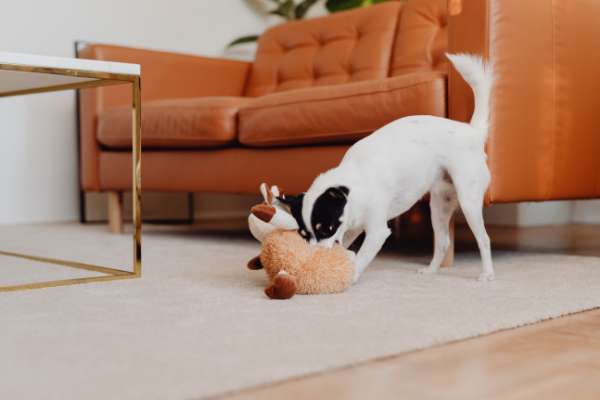
Steps to Understand and Address the Issue
When your dog is acting weird, displaying behaviors like shaking, restlessness, or a loss of appetite, to effectively understand and address the issue, you can follow these essential steps:
Observation and Documentation
- Dog Acting Weird: Begin by closely observing your dog’s behavior. Note any unusual actions or changes in their daily routine.
- My Dogs Acting Weird: Pay special attention to specific behaviors like shaking, as this could indicate distress or discomfort.
- My Dog is Acting Weird and Restless: Document any correlations between your dog’s weird behavior and their eating habits. Note if they have lost their appetite entirely.
Consultation with a Veterinarian
- Dog Acting Weird: If your dog is consistently acting strangely, consult a veterinarian promptly to rule out any underlying medical issues.
- My Dog is Shaking and Acting Weird: A veterinarian can perform a thorough physical examination and diagnostic tests to determine the cause of your dog’s shaking and unusual behavior.
- My Dog is Shaking and Acting Weird and Not Eating: Lack of appetite combined with odd behavior can signal a potential health problem. Seek professional advice to address this.
Behavior Modification and Training
- Dog Acting Restless: If restlessness is the issue, consider seeking the help of a professional dog trainer or behaviorist who specializes in addressing restlessness and anxiety.
- My Dog is Acting Weird: Implement positive reinforcement techniques to address weird behaviors such as excessive barking, whining, or aggression. Behavioral modification can help address common weird behaviors in multiple dogs if you have a multi-pet household.
Environmental Changes
- If you have multiple dogs and they are all acting strangely, evaluate your home environment for potential stressors or changes that might be affecting them and convert to dog acting weird.
- Create a calm and safe space for your dog to reduce restlessness and dog acting weird. Remove any potential triggers or stress-inducing stimuli.
- Minimize disruptions in your dog’s living conditions to provide stability and comfort to lessen dog acting weird.
Socialization and Interaction
- Gradual exposure to new people and pets can help if your dogs acting weird due to social factors.
- Encourage positive social experiences with other dogs and people to alleviate restlessness.
- Ensure that your dog is comfortable around others to reduce anxiety that may be causing loss of appetite.
Health Maintenance
- Regular vet check-ups are essential for addressing medical concerns that might lead to shaking and unusual behavior.
- Provide proper nutrition and exercise to maintain your dog’s overall health and well-being.
- Ensure all your dogs are up-to-date with vaccinations and preventive healthcare measures to minimise dog acting weird.
By following these steps, you can gain a better understanding of why your dog is acting weird and take appropriate actions to address the issue, whether it’s related to health, behavior, or environment. Remember that professional guidance from a veterinarian or dog trainer can be invaluable in resolving these concerns and ensuring your dog’s happiness and comfort.
Conclusion
When you notice your dog acting weird, it can be a sign that something might be bothering them. Whether your dog is shaking and acting weird, not eating, or displaying any other unusual behaviors, it’s essential to take their signals seriously. Here’s a recap of what we’ve discussed about why your dog is acting weird and how to address it:
Remember that every dog is unique, and the reasons why dogs acting weird can vary. By understanding and addressing the underlying causes, you can help your furry friend lead a happier and more comfortable life. If you ever find yourself wondering, “Why is my dog acting weird?” remember that there are resources available to assist you in better understanding and resolving the issue. Your dog’s well-being is worth the effort. For more interesting facts about all pets care, check out our blog!

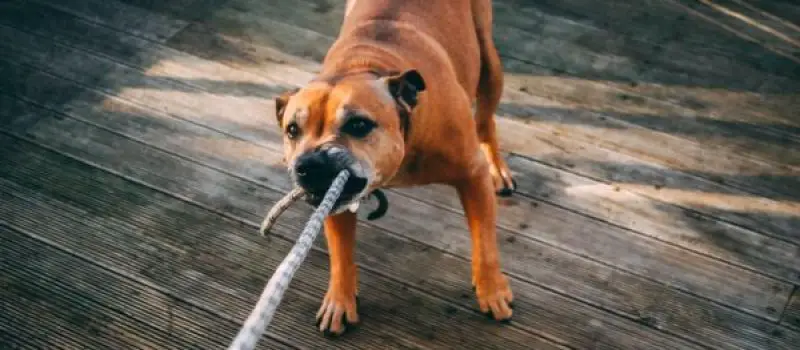







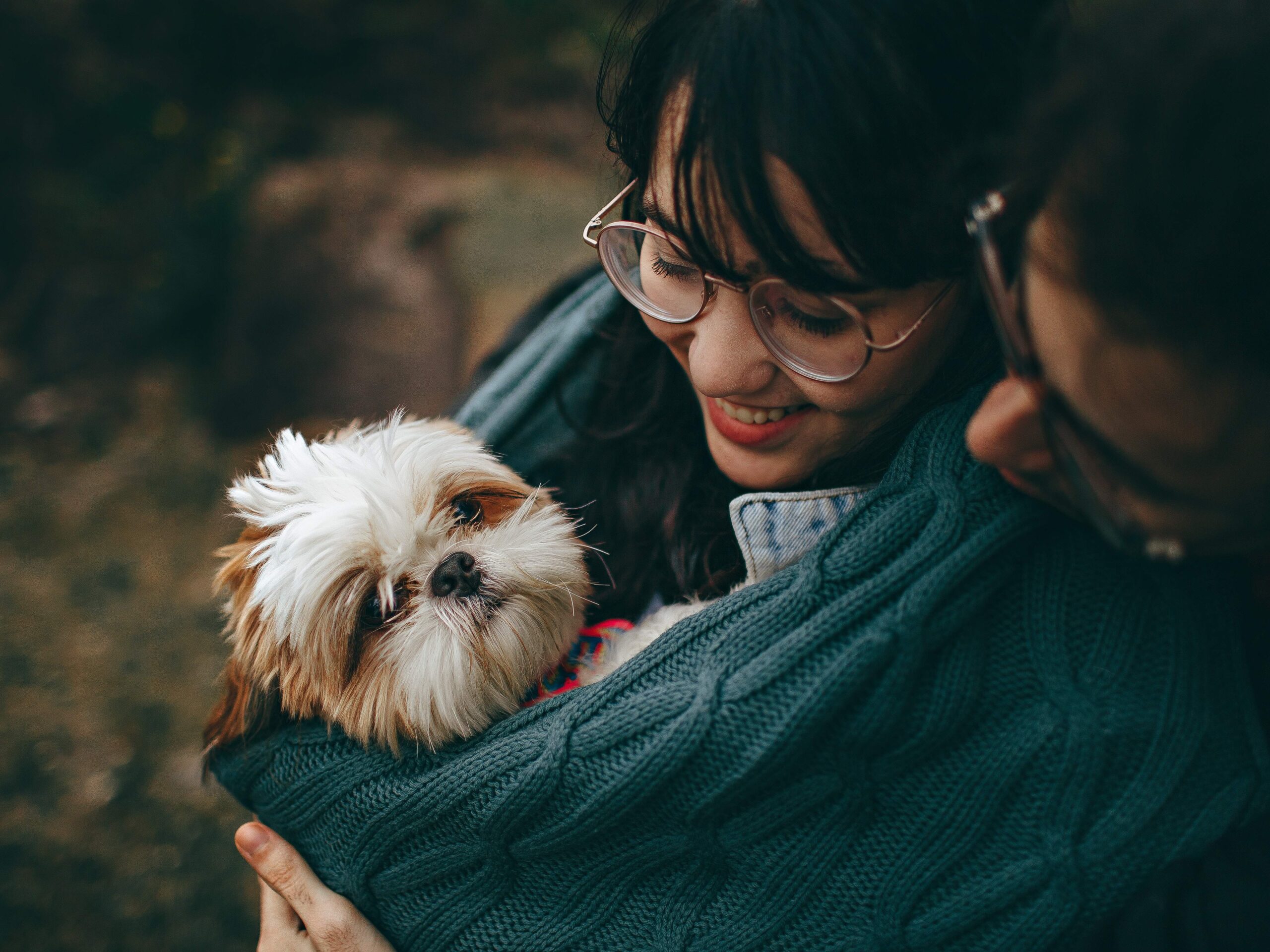


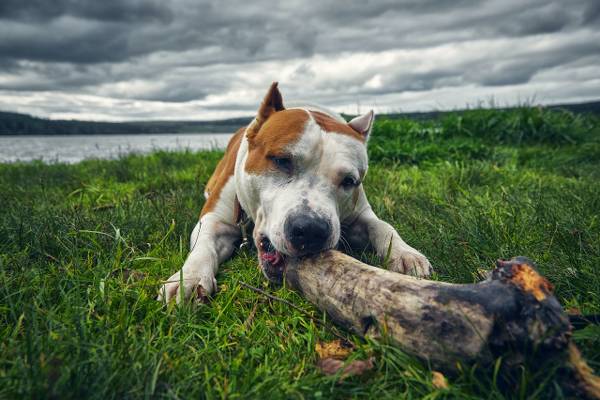
One Response